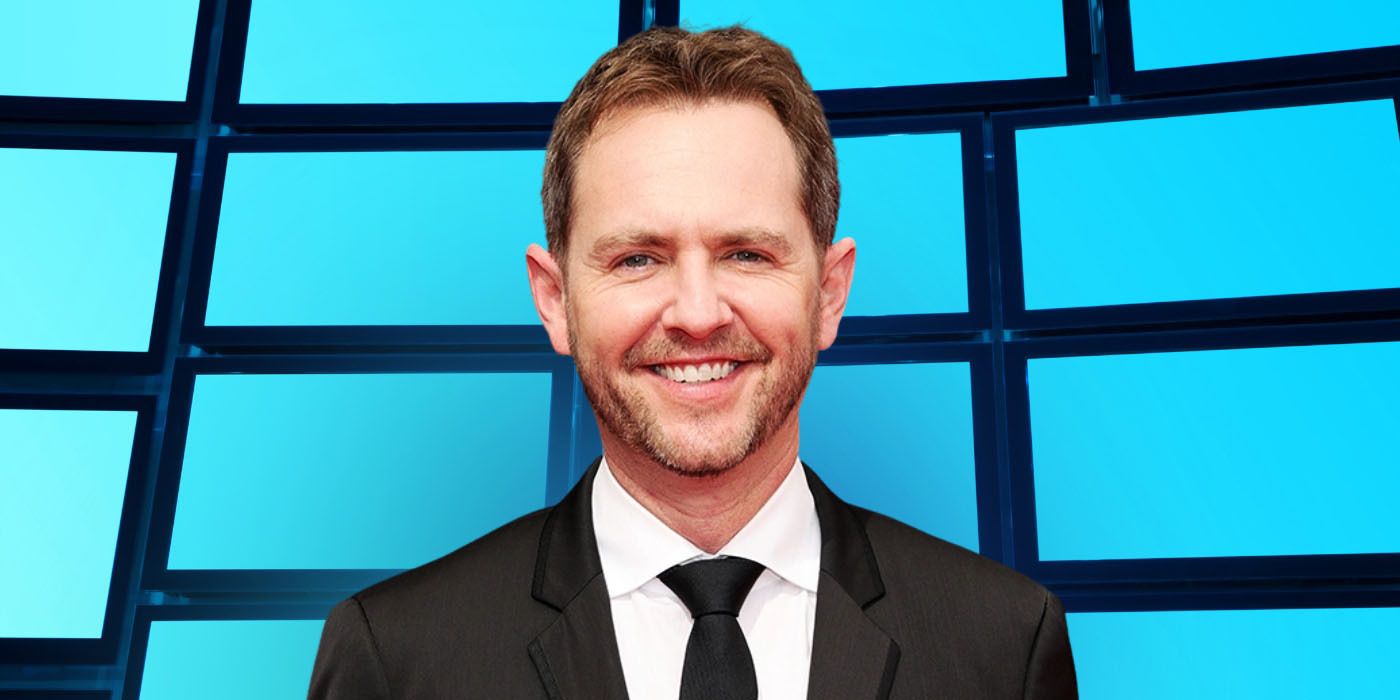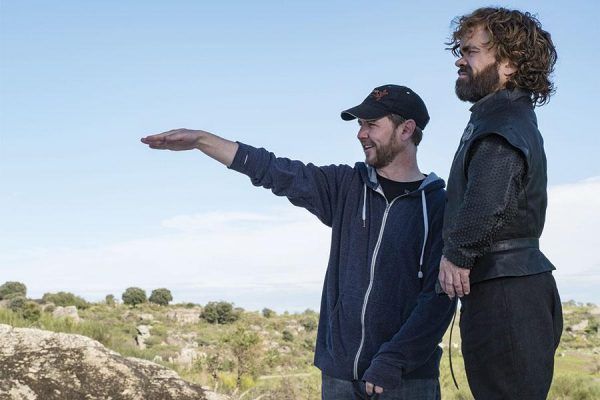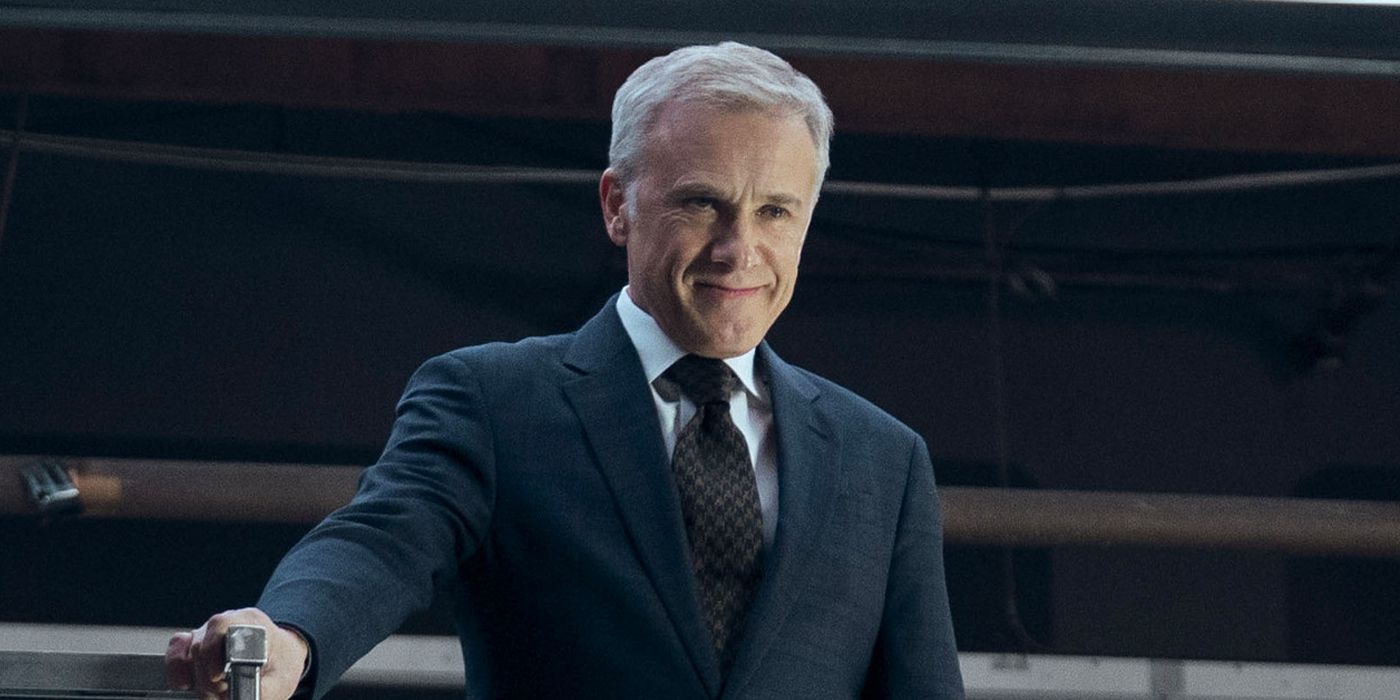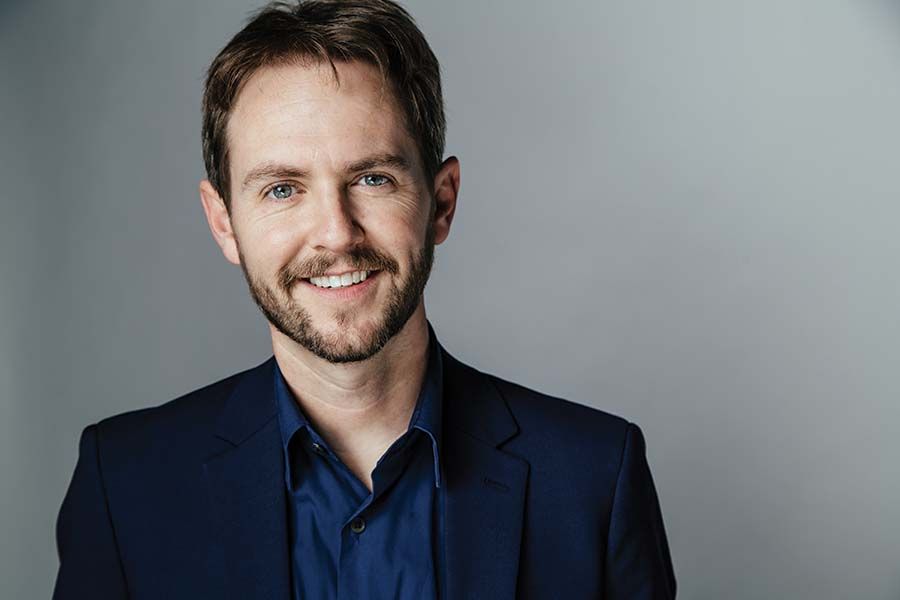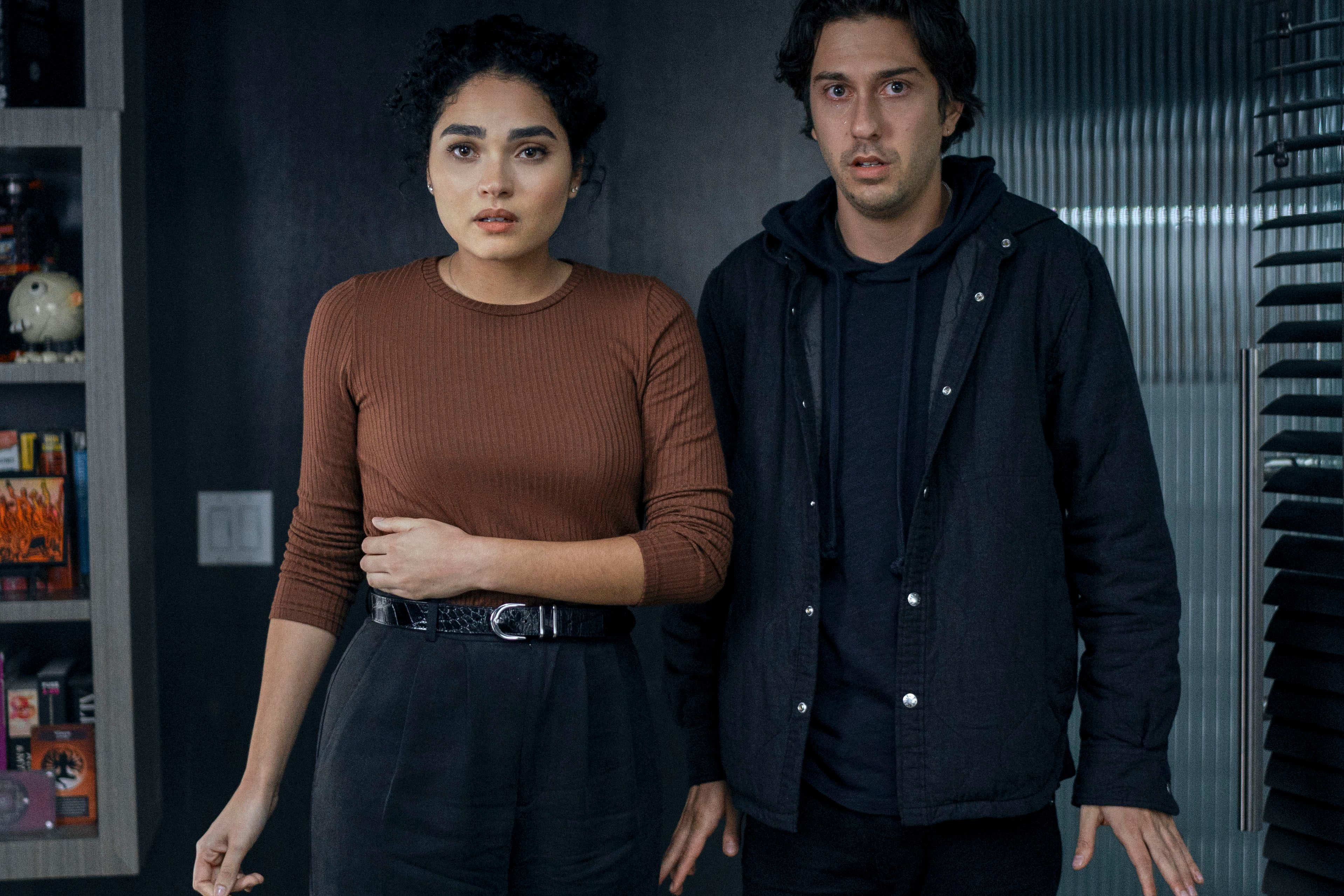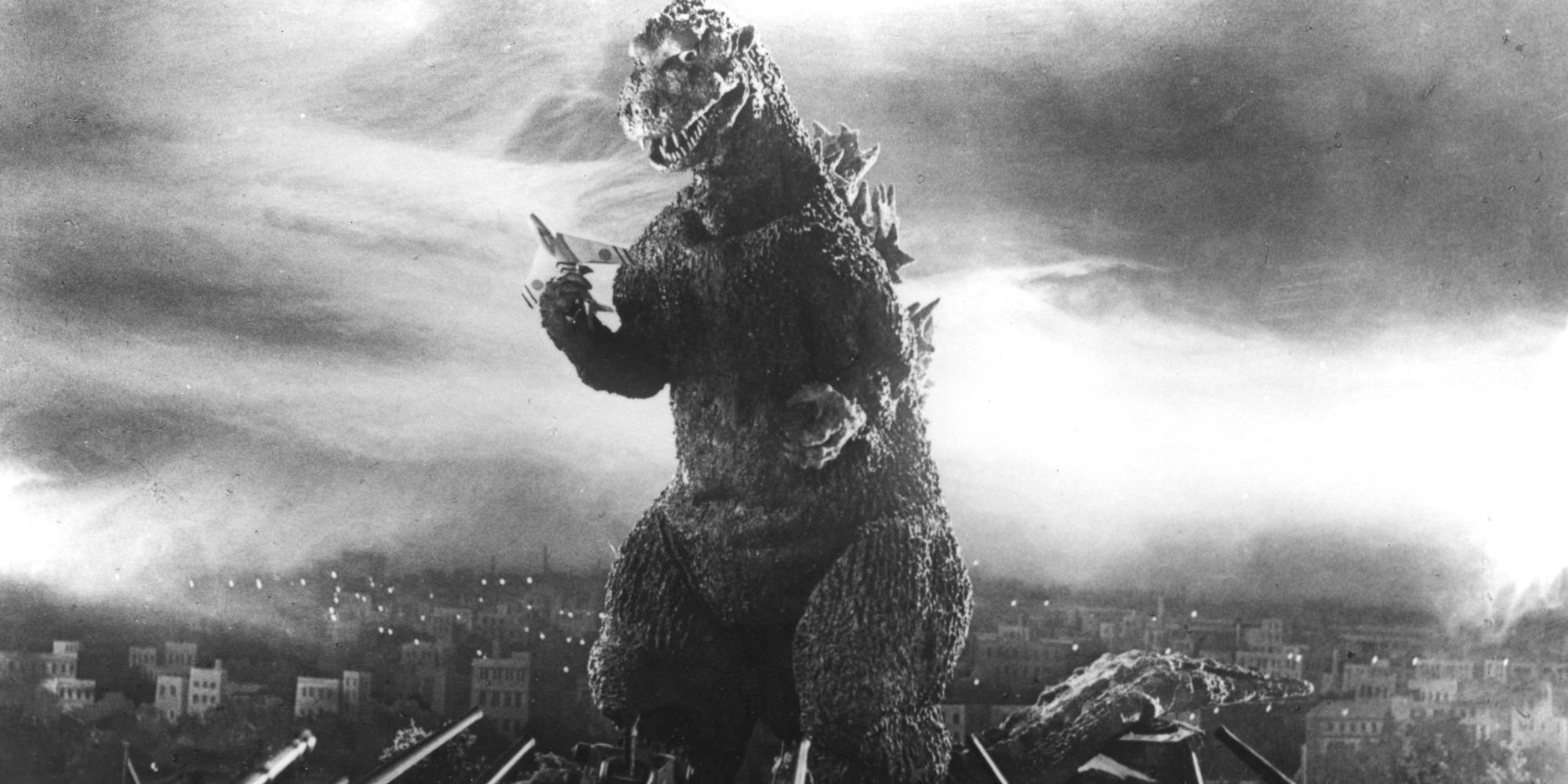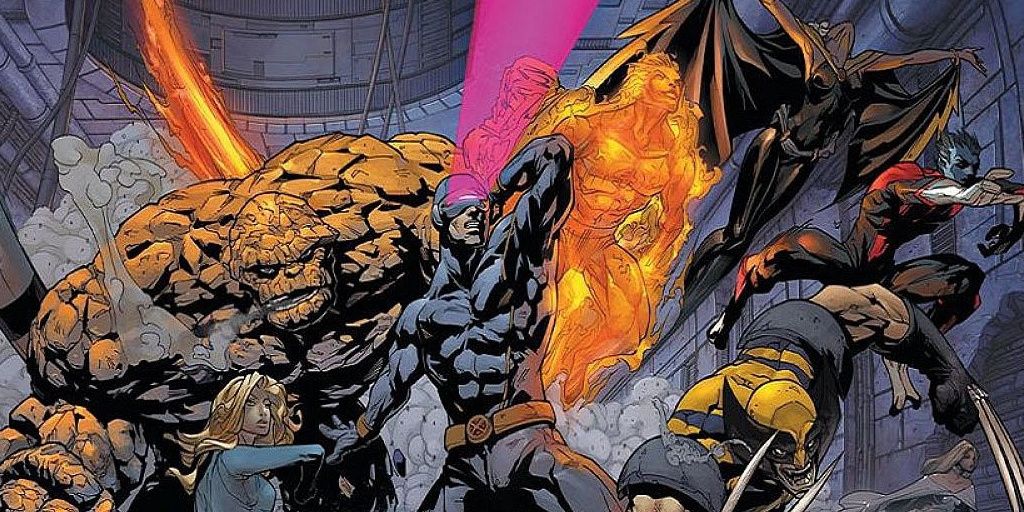Matt Shakman is a director and producer who’s been involved with an impressive number of hit series over the years. From Game of Thrones, Mad Men, It’s Always Sunny in Philadelphia, and The Boys, he has sat in the director’s chair for at least an episode, if not forty or more, of some of television’s most iconic shows. Most recently, Shakman served as the director for the MCU’s WandaVision, which earned a mind-boggling 23 Emmy nominations, and took home three. Now, he’s returning to Prime Video for a new comedy series, The Consultant, starring Academy Award-winner Christoph Waltz, and has been tapped as the director for Marvel’s highly anticipated Fantastic Four feature.
In The Consultant, when the CEO of one of the largest mobile game studios in Los Angles dies, a consultant, Regus Patoff (Waltz), is sent in to observe. Uptight and unforgiving, Regus is a fire-at-will “Suit” who hardly has to look for a reason to let go of the staff. Co-workers Craig, played by Nat Wolff, and Elaine, played by Brittany O’Grady, believe there may be something more sinister at play with this bizarre new consultant when they begin digging into his past.
Before The Consultant lands on Prime Video beginning February 24, Collider’s Steve Weintraub spoke with Matt Shakman about the series. During their interview, Shakman shares how his career ultimately began and which of the many TV shows he’s directed was the most difficult to step into for only one episode. He talks about working on The Consultant as both a director for the pilot, as well as an executive producer, getting Christoph Waltz on board, how Bong Joon-ho’s Oscar-winning film Parasite influenced the aesthetic going forward, and how the series was affected by the pandemic. He also talks Star Trek, his untitled Godzilla series for Apple TV+, and directing Marvel Studios’ first MCU Fantastic Four feature. For all of this, check out the interview in the video above, or you can read the full transcript below.
COLLIDER: So you started out as a kid actor in Hollywood, Diff'rent Strokes, Webster, Facts of Life. When did you realize you wanted to be an actor as a kid?
MATT SHAKMAN: You know, I fell into it as a kid because of my love of superheroes. I used to dress up almost exclusively as Superman, Batman, you know, Spider-Man.
I was going to say you were saying the wrong universe, go on.
SHAKMAN: [Laughs] I'm agnostic, I love them both, just like James Gunn. And I was told that I could not dress up anymore as a superhero when I was a kid, I had to come dressed as a normal kid. One day I showed up in normal clothes and then I raised my hand to go to the bathroom, like you do in preschool and kindergarten, and she took me to the bathroom and I, you know, pulled down my pants, I was wearing swimming trunks, and she said, “Why [are you] wearing swimming trunks?” And I said, “Because today I'm Aquaman.”
I probably shouldn't say anymore if I want to stay within Marvel, but yes, I was Aquaman. So I've always been involved in imagination, dressing up, and loving these characters. I kind of got discovered dressed up as a superhero and found my way to doing a commercial when I was four years old. So I just kind of went from one job to another. It was a lark that became a profession as a kid, and I ended up spending a lot of time on sitcom sets in the ‘80s, which was incredibly helpful when I did WandaVision because it felt like a trip down memory lane, and also a bit of therapy, too, because I got to kind of deal with this crazy past of mine.
But along the way, I just fell in love with what was happening behind the camera, and the directors, what they were up to, and I wanted to ask lots and lots of questions. Then, by the time I got out of college I knew that's what I wanted to do.
You did an episode of Night Court as a kid. Is it possible that now that Night Court's been renewed for Season 2, that that kid will make an appearance on Night Court Season 2 as a grown-up, and you will direct the episode?
SHAKMAN: Oh my gosh, that's a wonderful idea. Tell them I'm available, have them give me a call.
Right? I think they would, they would love it. So, I wasn't going to ask this, but obviously, I have stuff behind me in my interview, you have stuff behind you in your interview. I'm trying to figure out the choices you made of what to put behind you, you know what I mean? What's the stuff behind you?
SHAKMAN: It's a mix. Over one shoulder is Game of Thrones, which was a show that I absolutely loved working on. It was a really big turning point in my life, and the kind of cinematic, large-scale things that I could do and was being offered as a result of David Benioff and Dan Weiss, giving me a shot on that. There's Rob McElhenney from “The Night Man Cometh,” with an episode of It's Always Sunny in Philadelphia, a show that I worked on for most of my 20s and 30s, and some stuff from the Geffen Playhouse, a theater that I ran for the last six years. Some WandaVision stuff above my head, including a Stark toaster from Episode 1 of WandaVision, some Sherlock Holmes, some drawings of Spider-Man and Wolverine that I got when I met an inker from Marvel when I was about six or seven, who was really kind to me, a guy named Bob Wiaceck. I met him on a train, I told him how much I love Spidey, and he drew those for me and I’ve kept them ever since. They’ve been in my office ever since. Yeah, that's pretty much it.
Yeah, it's funny because all the stuff behind you is stuff you worked on, and I'm just like, “I'm a fan of these things.” It's a little bit different. You directed a lot of TV, and a lot of one-episodes where you'd step in, direct an episode, then go away. Besides Game of Thrones, which obviously is its own challenge, which show was the toughest to step in on for one episode, that required the most work and prep to really get it?
SHAKMAN: Certainly the first one. Taking that jump off that cliff when I worked on this show Once and Again. [Edward] Zwick and Marshall Herskovitz, great filmmakers, found me directing plays in the small theater and gave me a chance to shadow on their show, and eventually direct on their show. That was terrifying, you know, to do that for the first time, to realize that you have 200 people looking at you, and you have to figure out how to get everyone through the day and through the episode. That was certainly stressful.
But, you know, they all are, I have to say. Before I begin any job, I'm up late at night wondering if I got everything worked out, [and] how it's gonna go. I think the nerves are actually a part of it. I think if I lose the nerves, I'm probably becoming a hack. I want to stay invested. So each job is always different.
Jumping into why I get to talk to you. You directed the first episode, you're also an executive producer on the series. For people that don't realize, when you're directing the first episode of a show like this, can you take people through what exactly that means? How are you working with (creator) Tony [Basgallop] in terms of the casting, the aesthetic of the show, you know, every aspect of it? Because it's essentially, if I understand it right, your fingerprints on everything.
SHAKMAN: Yeah, absolutely. Tony sent me the script after he had adapted it from the novel. So he'd already decided that this was a novel he wanted to adapt and how he wanted to basically approach it, and I loved it. It just leapt off the page to me. I loved the uniqueness of the voice, the tone, and the style, and I certainly love the central character of Patoff. I'm a fan of thrillers and mysteries, and I love comedy, so when you put them together it's really exciting.
So he sent it to me, there was no one cast, we hadn’t been set up anywhere, with MGM as a studio, so we decided first to try to find our ideal Patoff. We made a list, and at the very, very, very top of the list was Christoph Waltz. The fact that he was willing to meet with us, let alone sign onto it, was just an incredible bit of luck, and I'm so grateful to be able to work with him. He’s a genius. So once we had him on board, then we went around and tried to find the ideal partner, and we had luck again with the top of the list for us, Prime Video Amazon, and they have been wonderful partners.
Can you talk about the aesthetic of the show and how you wanted to film the first episode? Because that's the blueprint that everyone else is going to follow.
SHAKMAN: Right. It's rare when you read something and you see it in your head. It happens to me every now and then as a director, but a lot of times you struggle to kind of visualize things and figure out the best way to tell the story. This just kind of jumped into my head, and it felt like I was chasing this imaginary idea of the show the entire time. And part of it, I think, is just Tony's writing is so excellent. The world that he was creating was evocative and I felt like I had a sense of what it should look like.
So architecture was very important to me, like the sense of clean lines. In some ways, I wanted it to feel a bit German, in a sense, the way that Patoff is mysteriously from everywhere, but the way Christoph is from that part of the world. I looked at a lot of Korean films – Parasite, obviously, but others. It has that same tone, that tone that kind of rides the line between comedy and drama and thriller. We were looking at something similar, and I knew that I wanted to have this juxtaposition between this very kind of Old World character and this new Gen Z, modern gaming company. Also, the idea that there's a youngness to that. The games that they play seem very innocent and simple, which stands in ironic juxtaposition to all the more complicated adult morality games that are happening in the office as a result of Patoff showing up.
So, we had to design the games from the ground up, we knew that there'd be a big lighting aspect because I wanted to just surround the world with giant screens so that during the day you had that inundation of that poppy, innocent gaming, and then at night it became this lonely… you know, the only way the office is lit is by these giant comp-ware screens. So, that was all how we started to build it. Jess Hall, who is a cinematographer I worked with a bunch on WandaVision, was a great partner on it in just kind of building this modern tech noir.
How much of the eight scripts were done before filming began on the first one?
SHAKMAN: I’m trying to recall. I think Episode 2… I read Episode 2 and 3 before we rolled cameras on Episode 1.
I'm always curious how much of a show gets to be block shot, you know? But I guess because of the office, most of it happens there, so I guess it really doesn't matter because you have your location.
SHAKMAN: Block shooting can be great. It can be a hugely efficient way to approach something. We didn't do that, we actually shot the pilot for this like a pilot. You know, we weren't 100% sure we would continue on, so we knew we had to kind of build something that could be the start of something great that people will be excited to keep going with. So we made the pilot, and then we had to take a break afterward to make sure that everybody was digging what we were doing, and then they would give us the thumbs up to continue on to the rest of the episodes. They did block-shoot the rest of the episodes. So 2 and 3, 4 and 5, which allows you to be more flexible, and you can go to really crazy locations because you have more days to fit everything in.
As executive producer, how involved were you in the editing room of Episodes 2-8?
SHAKMAN: Yeah, not so much. I looked at the cuts, and you have a few conversations along the way, and I talked to several directors, as well, just to talk about tone and style, and approach. But really, my job was to edit the pilot, to work really closely to make sure that that pilot felt like a great template to start. After that, obviously, I want the directors and Tony to have their freedom as they move forward.
For soon-to-be fans of the series, what do you think they would be surprised to learn about the actual making of the show?
SHAKMAN: Well, it's interesting, we were talking about what the office place is like post-pandemic. It wasn't really meant to be a pandemic-related story, but by virtue of the timing when we were making it, it really has that kind of attention of re-entry about it. How are we going to be in relationship to each other? And we were filming it during the Omicron outbreak, the pilot certainly, so we had to stop. I think there is, in the shots, at least in the pilot, that tension of, “Oh my gosh, will we be shut down today or not?”
I mean, there are literally shots in the show where people are wandering around just a little bit suspicious of each other as we were filming. That probably helped create that tension. Luckily, we're fine and everyone was healthy, but it is a challenge, certainly in the modern world.
I was disappointed that you were not gonna be able to make a Star Trek movie. I had heard through the grapevine that the script was coming together, and I'm curious, have you actually said what your movie was going to be about?
SHAKMAN: No, I haven't. I think I'm probably not really allowed to speak too much about it because I think what they're still working on is a version of what I have been working on for the time that I was involved.
I'm a huge Star Trek fan, and I want to talk honestly about this. I actually think that making a Star Trek movie for $100 or $150 million, I don't actually know if it's going to work anymore. I say it because the movies don't tend to perform at these huge numbers at the box office, and I'm wondering if the movie you were considering – without spoilers – was it one of those where it was going to cost like $150, $100 million, a ton of money? Part 2 of this is because I actually think that the way forward on a Star Trek movie is maybe to make one that's like $30 to $50 million, that's hard sci-fi, aimed right at the fans, and if it gets other people great.
SHAKMAN: It's an interesting question. I think, in our day and age now, any time you go to space in a movie it's expensive. When you're flying around in the Enterprise, even if you're going to land and be in one place for a long time, it's still pretty expensive. You have a large cast as well. Many of whom are really well-known, because they're amazing, and so just bringing that group together again isn't a cheap event.
So I think, yes, the movie that I was planning to make was going to be a large tent-pole film. I think that one of the things that JJ [Abrams] has done so well is that, he'll be the first to admit, he didn't grow up being a giant Star Trek fan even though he's a fan now. But he was a huge Star Wars fan. So I think in rebooting it with Chris Pine and Zoe [Saldaña] and Zach [Quinto], he brought a little bit of Star Wars to it, which I think helped expand its audience, in terms of the scope and the scale of it and the energy of it. I think that that certainly is the goal is to find more and more of an audience for Star Trek. But I am, like you, a huge fan of that, and it was a real shame that I couldn't make the timing work on that.
I am very much looking forward to an Apple series called – well, I don't actually know the title, but it's Godzilla. I'm curious how many episodes is that series?
SHAKMAN: That is 10 episodes.
How many did you direct?
SHAKMAN: Two of them.
So you did the first two?
SHAKMAN: Yep.
Where does it take place on the timeline in relation to the movies?
SHAKMAN: You know, I can't really say because that's part of the joy of it is, actually timelines [are] a big part of the storytelling. So I just want to say that's part of it, but I can’t really say more than that.
Godzilla, every time he shows up on screen, is expensive. I mean, it is not cheap to put Godzilla, or any monster, on screen. Obviously, Apple spends money on their series, but how much did you have to figure out, you know, “How many seconds of Godzilla can we put in per episode? What's the max we can do?” The VFX conversation has to be a huge part of that series.
SHAKMAN: It is, it's a part of everything, obviously, no matter what the scale of something. You always run out of money eventually, even if it's Harry Potter or Star Wars, Star Trek, Godzilla, you run out of money. But it's less about carrying out shots, although eventually, you have to do that, and more just about storytelling. You know, how much was Godzilla going to factor into the story, and he has a very important role to play, and how he factors into the series is a big part of it. So that was the bigger driver, and he's not the only Titan that you're gonna meet along the way. So there's, yeah, there's a VFX conversation constantly happening in that.
They're making another Godzilla movie right now. How much did you guys talk? Are you doing your own thing and then the movies can do their own thing?
SHAKMAN: You know what? There is some overlap, though we were not heavily involved in talking about it with Adam Wingard and his team. Legendary is the studio for our show, as well as for the films, and so they sort of sit at the juncture there between the two and they have a mythology department there which is wonderful. So they weigh in on how things might overlap, how certain creatures need to stay on one side or the other, and so there is a lot of conversation about it. But in terms of how closely the narratives overlap, it's not as involved to say, an MCU kind of Disney+ film crossover. It's less organized.
You, I believe, are directing another Marvel property coming up. I'm sure you're in prep mode right now. What is it like getting the keys to the Fantastic Four, and being the person who's going to bring that to screen in the MCU?
SHAKMAN: I have loved these characters since I was a kid so it is a huge joy to be able to work with them, spend time with them every day. To bring them into the MCU is also a huge joy. So it's that. It's just the excitement of being the kid who found them when I was six, seven, eight, and now being able to work with them on the big screen. It's amazing.
Are you just focused on Fantastic Four this year? Do you think you could be directing something else?
SHAKMAN: I don't think so. You know, I'm still finishing up the Godzilla project you were mentioning. We’re in post on that, and have a few more months on that. Fantastic Four is pretty much my life until Valentine’s Day of 2025.
I mean, it's very tough to have to spend that much time with those characters. Very tough. A lot of people online have been talking about rumors with casting and all this BS. Are you casting right now, or what can you tease people of where you're at in the pre-production of Fantastic Four?
SHAKMAN: All the casting stuff you see is just rumors. We are early in our process there. We have nothing to announce right now, and certainly, when we do, we'll let you know
Because you have a release date, do you know when you might start filming? Have you mapped out the schedule?
SHAKMAN: Yeah, early next year. That’s when we plan to go.
I like how the answers are getting shorter as I get into FF mode. Let me ask you this, what did you learn? Because obviously, you had such a [success] with WandaVision, I mean it's an incredible series. Can you talk about what you learned making WandaVision, working with Marvel, that you are now applying to [make] Fantastic Four and a big feature film?
SHAKMAN: Marvel is a wonderful place to work. I was thrilled to be able to come back and work with them because even though they produce the biggest movies, it's a very small family of people that you're collaborating with. They're all lovely people who are passionate about what they do. So you are working with huge film fans, everyone is making the same movie, you're all moving in the same direction and that's just a joy. It's not very often that that happens, especially when you're dealing with something on a really large scale, like the [Fantastic Four].
It's really fun to be back. When you join something for the first time like I did on WandaVision, you're just meeting everybody for the first time. Now it feels like you're spending time with your family, which is wonderful and so it's a great office to show up to every day.
I'd like to just ask one more thing if you don't mind. Marvel has all these upcoming projects, and I'm curious, did you say to them, “I want [Fantastic Four]”? Did they say to you, “Are you interested in any of these upcoming films?” How did you land on FF versus say, an Avengers movie?
SHAKMAN: [Fantastic Four] was just the film that made the most sense in conversation. It's the one that I think I naturally gravitate towards. You know, the reason I love Star Trek, I'm sure, is a big part of why I love the Fantastic Four. They share a great sense of optimism, the idea of looking to the stars, and technology can save everything, and coming together as a family, either a real family in the case of [Fantastic Four], or the family that you find in the case of the Enterprise. [There are] just a lot of things about the property that appealed to me, and I'm thrilled that I was able to be the one that could do it.
The Consultant premieres on Prime Video on February 24.

